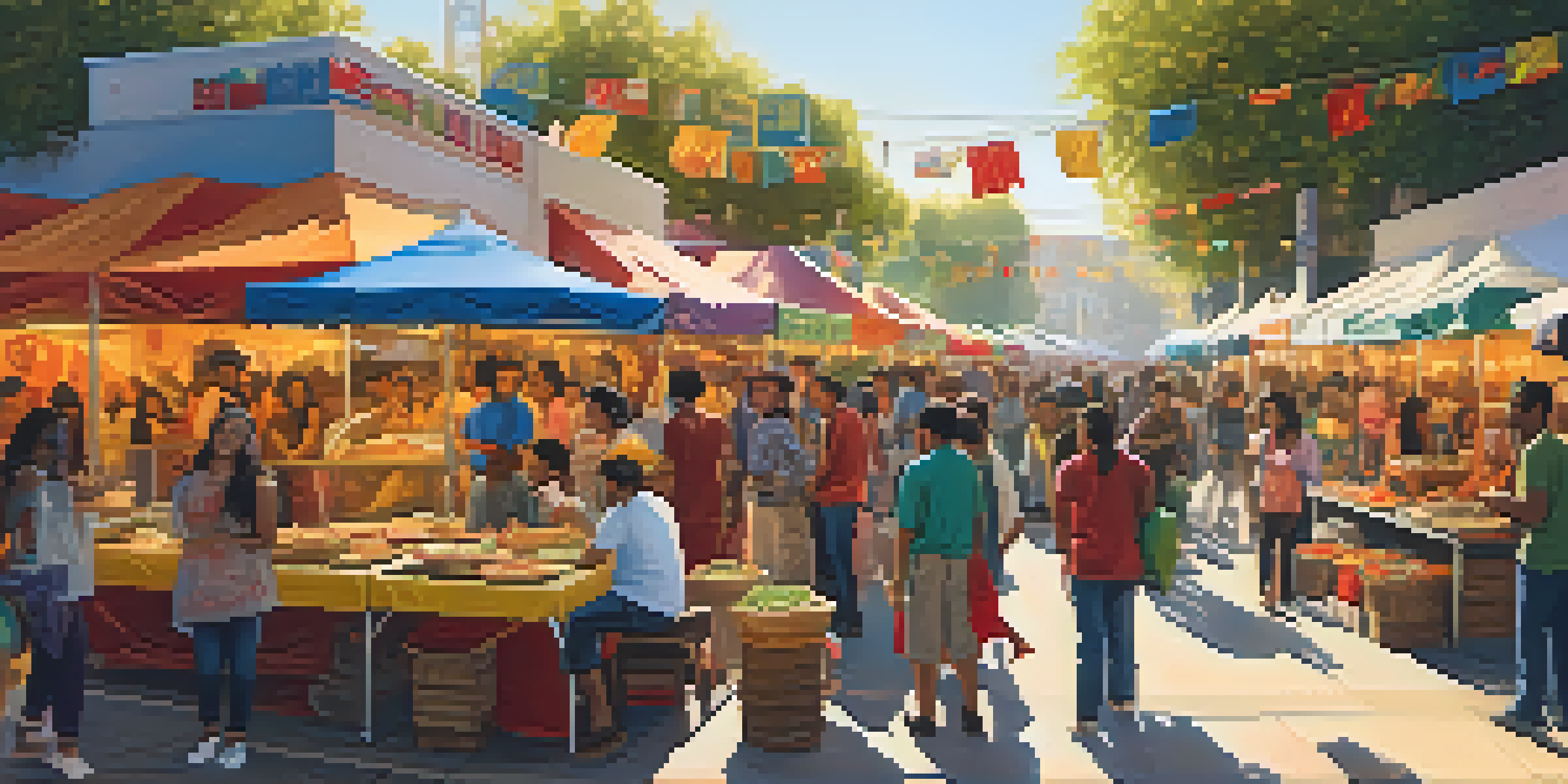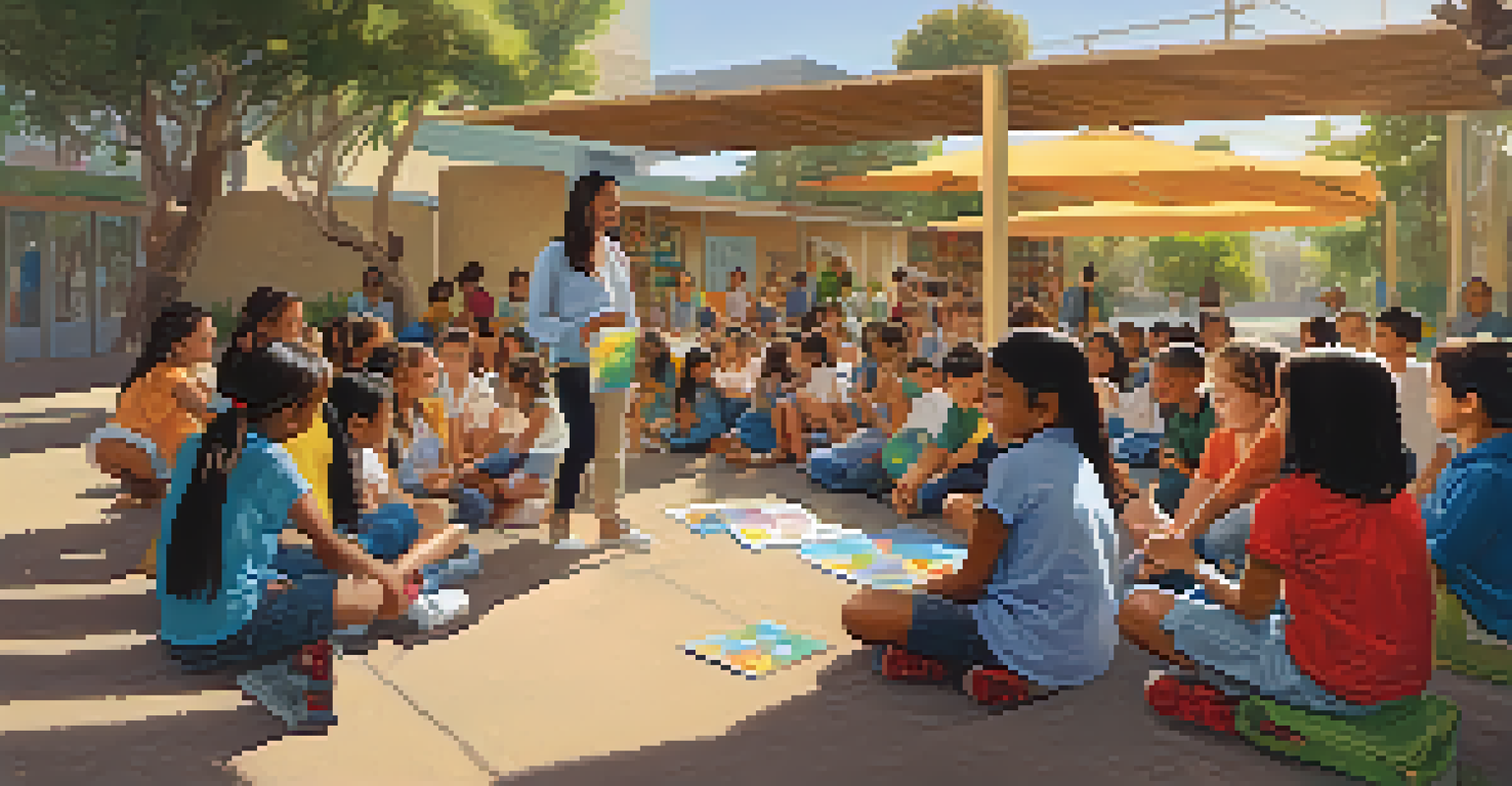Global Migration Trends and Their Effects on LA

Understanding Global Migration Trends in Recent Years
Global migration has surged over the past few decades, with millions moving across borders for various reasons, including economic opportunities, political stability, and family reunification. This shift is not just a statistic; it reflects the changing dynamics of societies around the world. Los Angeles, as a major urban center, has become a prime destination for many migrants seeking a better life.
Migration is not just about moving; it’s about thriving in new environments and contributing to the tapestry of society.
The factors driving migration are complex, often rooted in socio-economic challenges in home countries. For instance, individuals fleeing violence or economic hardship may seek refuge in cities like LA, where they believe opportunities abound. Understanding these motivations helps us appreciate the human stories behind the numbers.
In recent years, trends indicate shifts in migration patterns, such as an increase in refugees from specific regions and a rise in skilled workers from tech hubs. This evolving landscape demands a closer look at how these changes affect cities like Los Angeles.
The Cultural Mosaic of Los Angeles
Los Angeles is often celebrated as a cultural melting pot, and this is largely due to its diverse immigrant population. Each group contributes unique customs, traditions, and flavors, enriching the city's cultural landscape. From food festivals to art exhibitions, the vibrant tapestry of LA is woven from the experiences of its many residents.

With communities from Latin America, Asia, and beyond, LA offers a glimpse into the world's cultures. This diversity fosters creativity and innovation, making the city a hub for artists, entrepreneurs, and thinkers. One can find authentic cuisine from around the globe, showcasing the culinary expertise of immigrant chefs.
Migration Shapes LA's Culture
Los Angeles thrives as a cultural mosaic, enriched by diverse immigrant communities that contribute unique traditions and innovations.
Moreover, cultural exchange in LA is not just about food or festivals; it extends to language, music, and art. This blend of influences creates a dynamic environment where new ideas flourish, and residents learn from one another, ultimately strengthening community bonds.
Economic Contributions of Migrants to LA
Migrants play a crucial role in the economy of Los Angeles, contributing significantly to various industries. From construction to technology, the labor force is bolstered by the skills and dedication of immigrants. This impact is especially evident in sectors that often struggle to find local talent, highlighting the importance of a diverse workforce.
Diversity is the engine of invention. It generates creativity that enriches the world.
Moreover, immigrants are not just laborers; they are also entrepreneurs. Many start their own businesses, driving innovation and job creation within their communities. For instance, family-owned restaurants and shops often reflect the cultural heritage of their owners while also contributing to the local economy.
In essence, the economic footprint of migrants in LA showcases their resilience and adaptability. Their contributions help sustain the city's growth, making it a vibrant and economically viable place to live and work.
Challenges Faced by Migrants in Los Angeles
While LA offers many opportunities, migrants often face significant challenges upon arrival. Language barriers can hinder access to essential services, employment, and education. This can lead to feelings of isolation and frustration, as individuals strive to integrate into a new society.
Additionally, migrants may encounter systemic obstacles, such as discrimination or lack of support networks. These challenges can affect their mental health and overall quality of life. It's essential for communities and local governments to recognize these issues and work towards creating more inclusive environments.
Economic Impact of Immigrants
Migrants significantly bolster LA's economy through their contributions in various industries and entrepreneurial ventures.
Despite these hurdles, many migrants demonstrate remarkable resilience, often finding ways to navigate the complexities of their new lives. Supportive community organizations and initiatives can make a substantial difference, helping migrants overcome these barriers and thrive in Los Angeles.
Impact of Migration on Housing in LA
The influx of migrants into Los Angeles has profound implications for the housing market. Increased demand for housing can drive up prices, making it difficult for both newcomers and long-term residents to find affordable options. This phenomenon often leads to discussions around gentrification and displacement within neighborhoods.
As neighborhoods evolve due to demographic changes, long-standing residents may feel the pressure to leave their homes. This tension highlights the need for effective housing policies that balance the needs of various communities while promoting inclusivity. It's a complex issue that requires collaboration among local stakeholders.
Ultimately, the relationship between migration and housing in LA underscores the importance of sustainable urban planning. By addressing these challenges head-on, the city can work towards creating a housing landscape that accommodates everyone, regardless of their background.
Educational Challenges and Opportunities for Migrants
Education is a critical area where the effects of migration are felt in Los Angeles. Many migrant families prioritize education as a pathway to a better future, but they often face unique challenges in accessing quality schooling. Language barriers, economic constraints, and unfamiliarity with the education system can create significant obstacles.
However, these challenges also present opportunities for innovation in education. Schools are increasingly adopting bilingual programs and culturally responsive teaching methods to better serve diverse student populations. This approach not only supports migrant children but also enriches the learning experiences of all students.
Challenges Migrants Encounter
Despite the opportunities in LA, migrants face substantial hurdles such as language barriers and systemic obstacles that impact their integration.
Ultimately, fostering an inclusive educational environment in LA is essential for the success of future generations. By investing in resources and programs that address the needs of migrant students, the city can cultivate a more equitable and thriving community.
The Future of Migration in Los Angeles
Looking ahead, the future of migration in Los Angeles will likely continue to evolve in response to global trends. As climate change, economic shifts, and geopolitical factors influence migration patterns, LA must adapt to these changes. This adaptability will be crucial for maintaining the city's vibrancy and diversity.
Moreover, the integration of migrants into the social fabric of LA will require ongoing collaboration among various stakeholders, including community organizations, local governments, and residents. Creating supportive environments that foster inclusivity and understanding will help address the challenges that arise.

Ultimately, the story of migration in Los Angeles is one of resilience and opportunity. By embracing diversity and working together, the city can continue to thrive as a global hub for innovation and creativity.